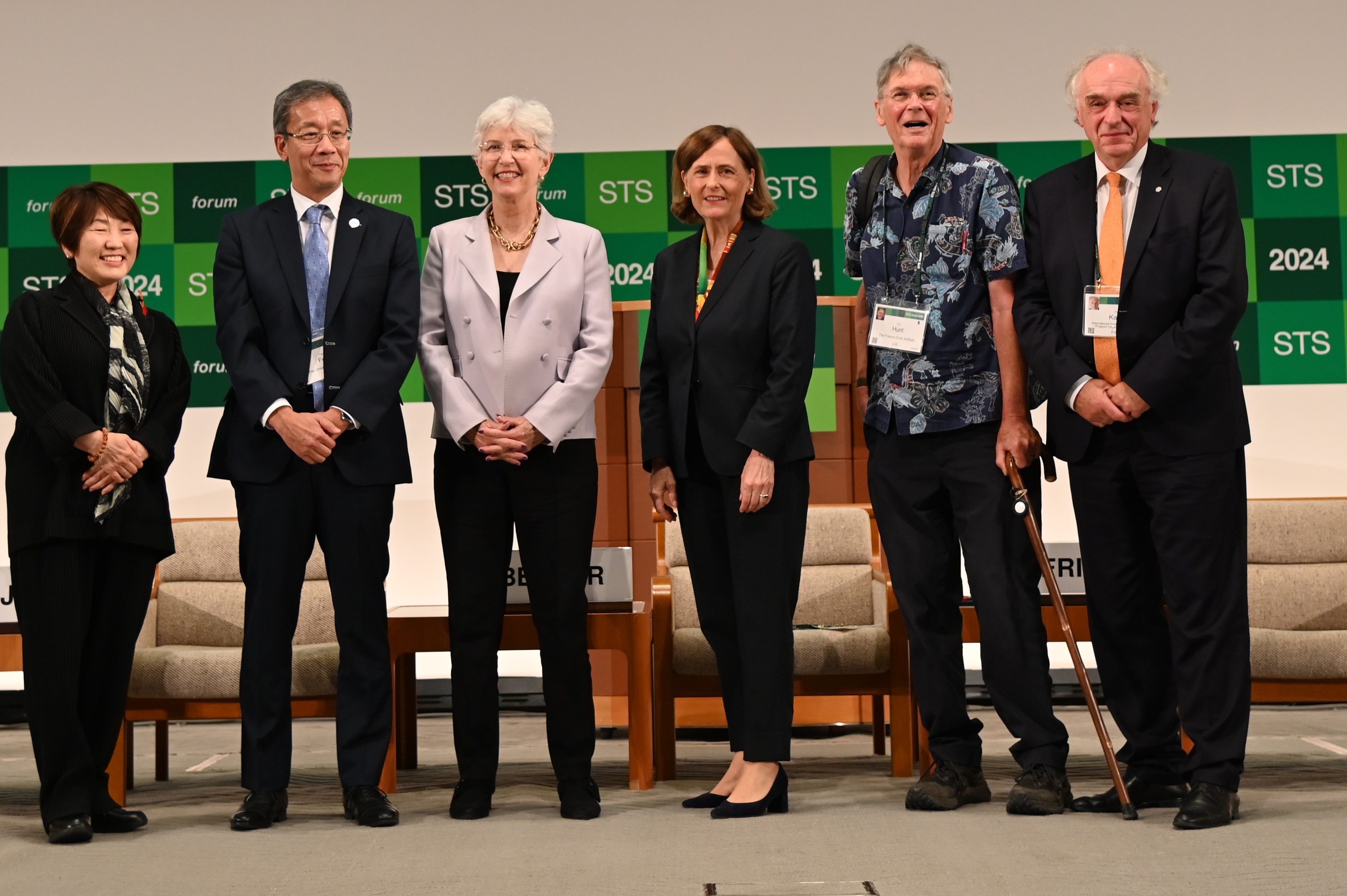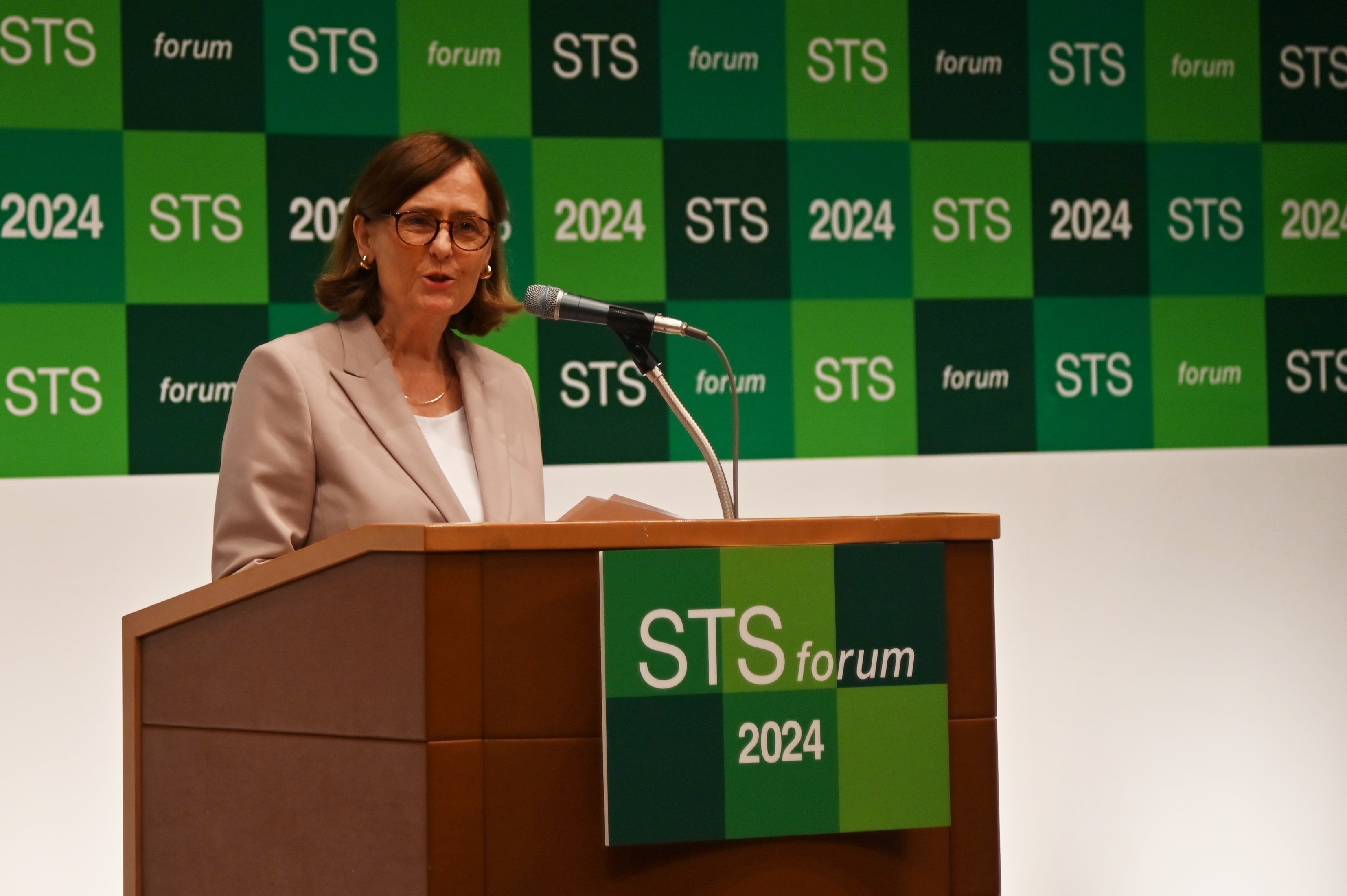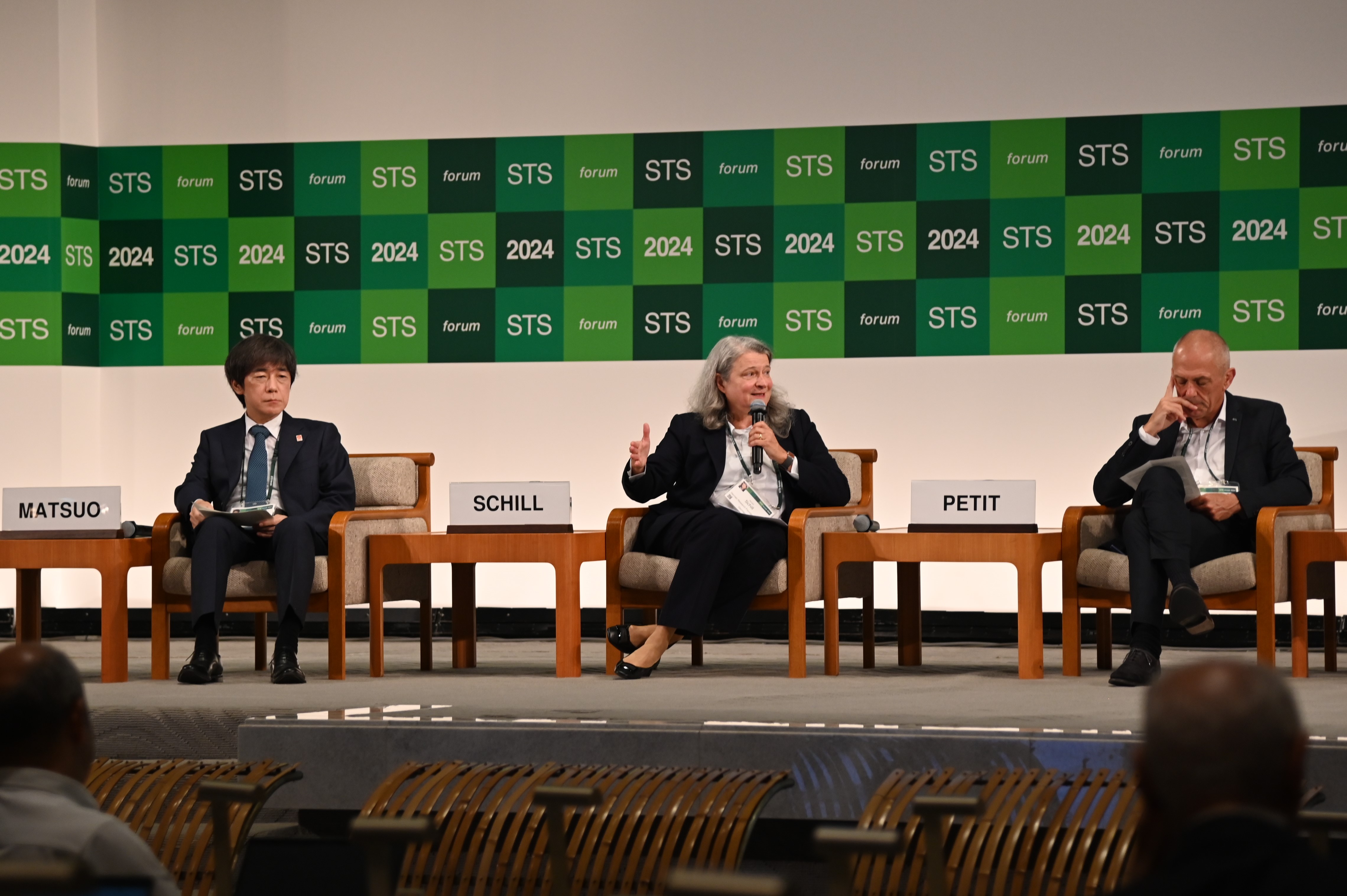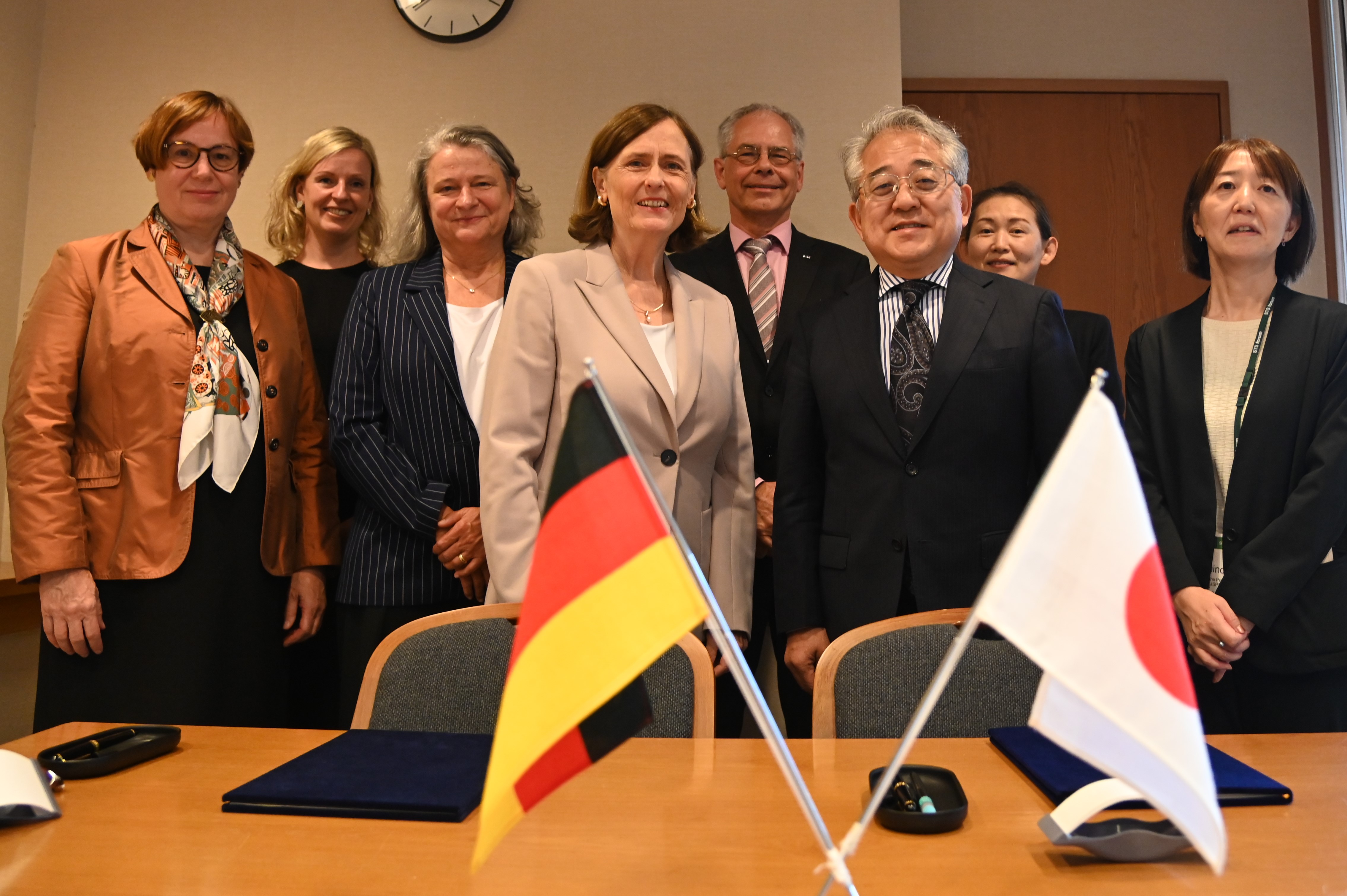DFG President Katja Becker and Vice President Kerstin Schill Visit Kyoto
A DFG delegation travelled to Japan at the beginning of October to attend the STS forum and take part in celebrations to mark the 50th anniversary of German-Japanese cooperation in the area of science and technology.
Participants of the panel “Basic Science, Innovation and Policy”: Toshiko Abe, Teruo Fujii, Cynthia Friend, Katja Becker, Tim Hunt and Pavel Kabat (from left to right).
© DFG
This year’s Science and Technology in Society forum (STS forum) opened in Kyoto, Japan, on 6 October with the question “The World in 2024 – What do we need from S&T?”. The annual meeting brings together high-ranking representatives from science, industry, politics and society to talk about how science can help tackle the global challenges of our time. An elected member of the STS Governing Board and the STS Council since 2021, DFG President Professor Dr. Katja Becker travelled to Kyoto this year with Vice President Professor Dr. Kerstin Schill and other DFG representatives.
At the session “Basic Science, Innovation and Policy”, Becker highlighted the value of international cooperation in the area of basic research; but she also addressed the potential risks that can arise from cooperation, noting that it was especially important to strike the right balance between academic freedom and research security. As a possible solution, the DFG President suggested establishing „internationally recognised, common regulations and framework conditions“, adding that the Global Research Council could provide a suitable platform for the development of such standards.
Meanwhile, DFG Vice President Schill took part in the discussion on “Lights and Shadows of AI”, saying: “Artificial intelligence is not only a key research topic and a powerful tool, it also has an impact on the process of research funding itself.” Schill said this raised various questions, such as: should we allow the use of AI in the preparation of research proposals, and should reviewers be allowed to use AI to prepare their reviews? Schill noted that the DFG had recently formulated a position on these two issues but, she said, the ultimate question was what qualities would be expected of research proposals in the future.
Following the STS forum, the DFG and the Japan Science and Technology Agency (JST) jointly hosted a “Funding Agencies’ Presidents Meeting”. This was attended by more than 30 leaders of funding organisations from around the world, who discussed the topic “How can funding agencies further engage in and contribute to the promotion of science diplomacy?”. The focus here was both on the expectations and strategies pursued by funding organisations deriving from the notion of science diplomacy and also specific initiatives and their impact.
In addition, this year’s 50th anniversary of scientific and technological (S&T) cooperation between Germany and Japan provided an occasion for celebration. Collaboration between the two countries in this field dates back to an agreement concluded in 1974 and has since developed into a strategic partnership that now forms an important pillar of relations between the two countries. The DFG works closely with Japanese partner organisations and supports numerous German-Japanese projects through bilateral calls. DFG President Becker was therefore delighted to accept the invitation of the BMBF and the Japanese Ministry of Foreign Affairs (MOFA) to attend a formal reception.
In her keynote address at the S&T cooperation anniversary event, Becker spoke of the “stable foundation that has grown over decades”, forming the basis for the DFG’s cooperation with Japanese funding organisations. “Together we will continue to work towards shaping a global framework in which excellent research can flourish”, said Becker, adding: “In global research policy organisations such as the Global Research Council, we are working towards a shared understanding of issues such as open science, research ethics and integrity, and sustainability in research.”
In Kyoto, the DFG delegation led by Becker met with JSPS President Tsuyoshi Sugino to sign a renewed memorandum of cooperation on International Research Training Groups (IRTGs) and discuss further topics relating to cooperation. IRTGs are a particularly important element of the DFG’s cooperation with Japan: under this programme, in conjunction with the Japan Society for the Promotion of Sciences (JSPS), funding has been provided for a joint qualification and research scheme for doctoral researchers from the two countries ever since 2005. Five German-Japanese projects have been completed to date, while two more are currently in receipt of funding.
Making the most of the opportunity to engage in dialogue, the delegation also met with other international partners for bilateral talks on the fringes of the main programme, resulting in a diverse programme that highlighted the value of international cooperation beyond the STS forum and providing opportunities to discuss the relevant areas of action.



